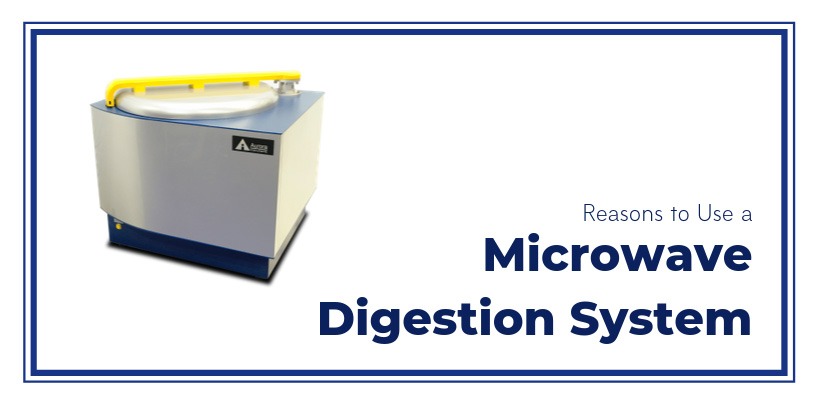
The acid digestion process occurs throughout various industries in laboratories around the world. The process of acid digestion, in which a heated acid digests the samples, can be quite lengthy. It also requires a lot of focus and attention on behalf of the attending analyst. Rather than utilizing open-acid digestions, some labs are switching to automated microwave digestion systems. Below are just a few reasons to use a microwave digestion system in your lab.
Safety
Safety is of the utmost importance in a laboratory setting. So, it stands to reason that one of the most important benefits of a microwave digestion system is its attention to safety. Unlike open-acid digestions, microwave digestion systems enclose the reaction within a sealed chamber. This eliminates the possibility of the analyst becoming exposed to toxic or corrosive acid fumes. Automated microwave digestion systems further reduce the risk of injury by monitoring internal pressure and temperature. This greatly reduces the risk of a system becoming over-pressurized. However, in the unlikely event this was to occur, there’s no need to worry. Automated microwave digestion systems have rupture disks and vent detection mechanisms that will shut the system down in the event of an accident.
Efficiency
Perhaps the most popular reason to use a microwave digestion system is to save time and streamline the overall digestion process. First, the structure of the microwave digestion system enables the analyst to heat multiple samples at once. This significantly reduces the reaction times for each sample and allows for the completion of more digestions in a given time frame. Some automated microwave digestion systems can accommodate up to 10 samples. Even smaller systems can accommodate six samples at once. Secondly, automated microwave digestion systems reduce the overall time for the digestion by operating at and maintaining a higher temperature throughout the process. Because the reaction takes place within a closed system, automated microwave digestion systems can operate at a much higher temperature. The higher the temperature of the system, the quicker the digestion can take place.
Reliability
With open-acid digestions, the completion of the extraction process is up to the discretion of the analyst. This can sometimes lead to incomplete extraction and incorrect results which may skew data. Additionally, open-air digestions are only able to utilize acids at their atmospheric boiling points which may not be sufficient in digesting certain materials. Automated microwave digestion systems, however, can bring acids to temperatures above their atmospheric boiling points, making it easier to fully digest more difficult materials. This is particularly useful in digesting heavy metals. Utilizing higher temperatures is also useful for less dense materials, as it can speed up the digestion process significantly.
Versatility
An array of industries can use automated microwave digestion systems. This versatile piece of equipment sees applications in forensics, manufacturing, agriculture, mining, and metallurgy. For example, agriculturists use these systems to digest and separate soil samples into their base elements. Further, in the mining industry, people use microwave digestion systems to digest and prepare metal samples for analysis in the study of metallurgy. Because of its high versatility and reliability, several laboratories around the world can use microwave digestion systems to their benefit, regardless of industry.


